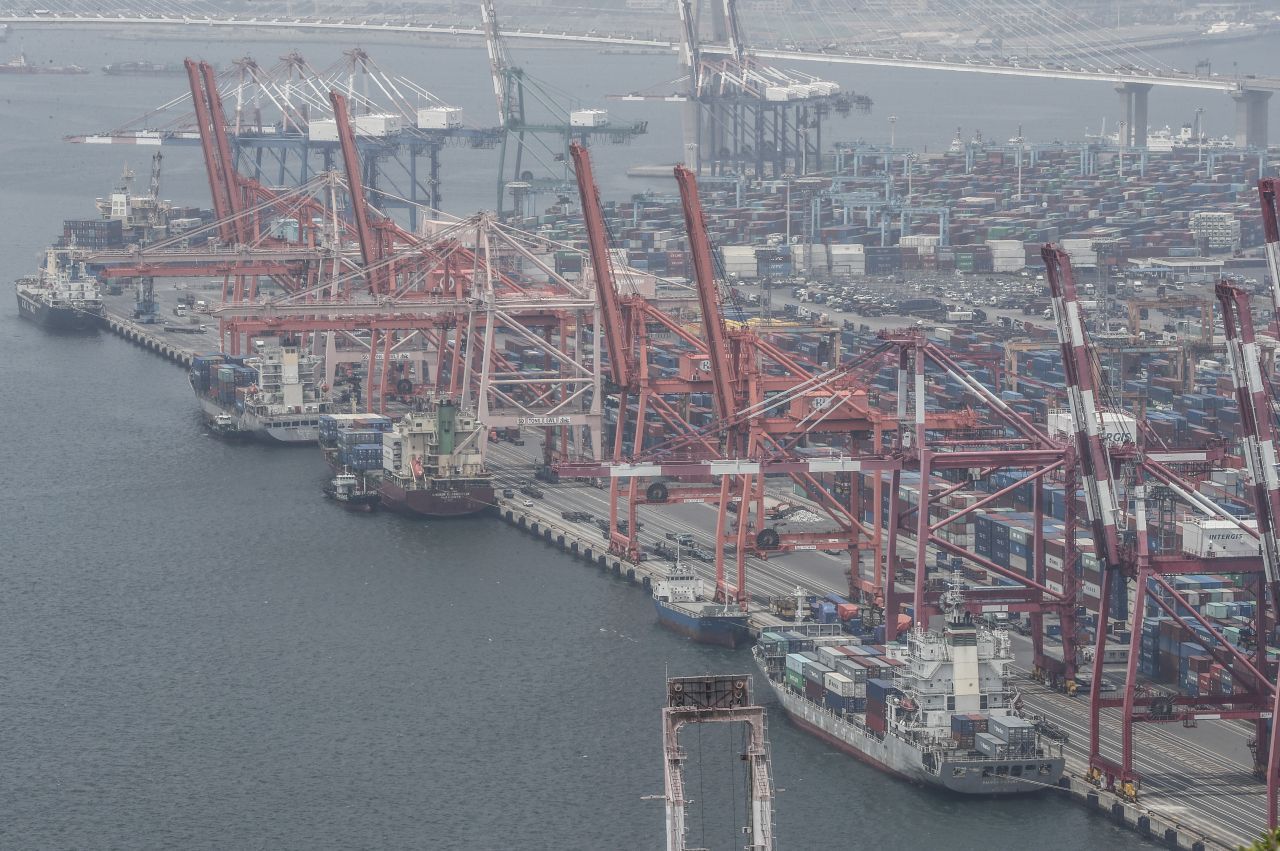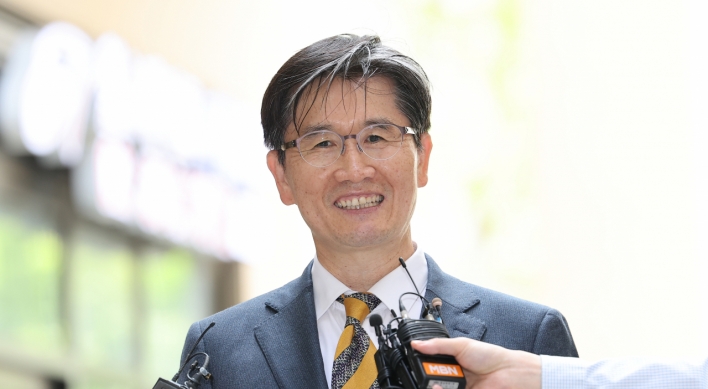
South Korean companies' sales declined at a slower pace in the third quarter than three months earlier as the manufacturing sector fared better amid improving exports, central bank data showed Thursday.
Sales of local businesses fell 3.2 percent in the July-September period from a year earlier, slowing from a record 10.1 percent fall in the second quarter, according to the data from the Bank of Korea (BOK).
The pace of a fall in corporate sales eased last quarter, but it marked the seventh consecutive quarter of on-year decline.
The quarterly report is based on a review of 20,914 listed companies that are subject to external audits.
Last quarter, sales by the manufacturing sector and larger companies declined at a markedly slower pace than three months earlier, as exports of chips remained robust and auto production increased amid the COVID-19 pandemic.
Manufacturers saw their sales fall 1.6 percent on-year in the third quarter, compared with a 12.7 percent on-year decline in the second quarter. Revenues of larger businesses declined 3.6 percent on-year last quarter, after falling 11.3 percent three months earlier.
Corporate profitability also improved in the third quarter, led by electronics and petrochemical makers, the BOK said.
The average ratio of operating profit to sales came to 6 percent last quarter, higher than 4.7 percent in the same period of last year.
Local firms' total assets grew at an average 1.9 percent in the third quarter, the BOK said.
The average debt-to-equity ratio, a gauge of financial health, reached 86.8 percent as of end-September, down from 87 percent three months earlier, it added. (Yonhap)
Sales of local businesses fell 3.2 percent in the July-September period from a year earlier, slowing from a record 10.1 percent fall in the second quarter, according to the data from the Bank of Korea (BOK).
The pace of a fall in corporate sales eased last quarter, but it marked the seventh consecutive quarter of on-year decline.
The quarterly report is based on a review of 20,914 listed companies that are subject to external audits.
Last quarter, sales by the manufacturing sector and larger companies declined at a markedly slower pace than three months earlier, as exports of chips remained robust and auto production increased amid the COVID-19 pandemic.
Manufacturers saw their sales fall 1.6 percent on-year in the third quarter, compared with a 12.7 percent on-year decline in the second quarter. Revenues of larger businesses declined 3.6 percent on-year last quarter, after falling 11.3 percent three months earlier.
Corporate profitability also improved in the third quarter, led by electronics and petrochemical makers, the BOK said.
The average ratio of operating profit to sales came to 6 percent last quarter, higher than 4.7 percent in the same period of last year.
Local firms' total assets grew at an average 1.9 percent in the third quarter, the BOK said.
The average debt-to-equity ratio, a gauge of financial health, reached 86.8 percent as of end-September, down from 87 percent three months earlier, it added. (Yonhap)










![[Weekender] How DDP emerged as an icon of Seoul](http://res.heraldm.com/phpwas/restmb_idxmake.php?idx=644&simg=/content/image/2024/04/25/20240425050915_0.jpg&u=)

![[Today’s K-pop] NewJeans' single teasers release amid intrigue](http://res.heraldm.com/phpwas/restmb_idxmake.php?idx=644&simg=/content/image/2024/04/26/20240426050575_0.jpg&u=)






![[Herald Interview] Mistakes turn into blessings in street performance, director says](http://res.heraldm.com/phpwas/restmb_idxmake.php?idx=652&simg=/content/image/2024/04/28/20240428050150_0.jpg&u=)
